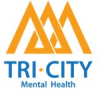Search for positions by entering key words in search box below. Use left side navigation to filter by Region, Job Category, Job Type or Salary.
$2500 Sign-on Bonus for New Employees!
Intermittent Teleworking Available!
Annual Salary Ranges:
- Clinical Supervisor I $109,254.76 - $139,439.83
- Clinical Supervisor II $117,655.45 - $150,161.33
Are you a Licensed Clinical Social Worker (LCSW)?
THE POSITION
Tri-City Mental Health Authority is currently hiring to fill one full-time vacancy for the position of Clinical Therapist II within the Mobile Crisis Care Program (MCCP).
Tri-City’s MCCP operates 24/7 to provide crucial support in mobile crises. As such, the schedule will involve a 3/12 shift pattern, consisting of three twelve-hour days per workweek and one alternating eight-hour day every other week. Shifts may include evenings, weekends, daytime hours, and holidays.
$2500 Sign-on Bonus eligible!
Intermittent Teleworking Schedule available!!
The position description:
Peer Support Specialist I/II- Mobile Crisis Care Program (MCCP) (20661272)
THE POSITION
Tri-City Mental Health Authority is currently hiring to fill two (2) full-time vacancies for the position of Peer Support Specialist I/II (PSS) within the Mobile Crisis Care Program (MCCP). This position requires individuals to work on-site 5 days a week from 9:00am to 5:30pm, until training is successfully completed. Once fully trained, your schedule may adjust based on team needs and role requirements.
THE POSITION
Tri-City Mental Health Authority is currently hiring to fill vacancies for the position of Psychiatric Technician I/II (Licensed) within the Mobile Crisis Care Program (MCCP) for the night shift.
Tri-City’s MCCP operates 24/7 to provide crucial support in mobile crises. As such, the schedule will involve a 3/12 shift pattern, consisting of three twelve-hour days per workweek and one alternating eight-hour day every other week. Shifts may include weekends, daytime hours, and holidays.


